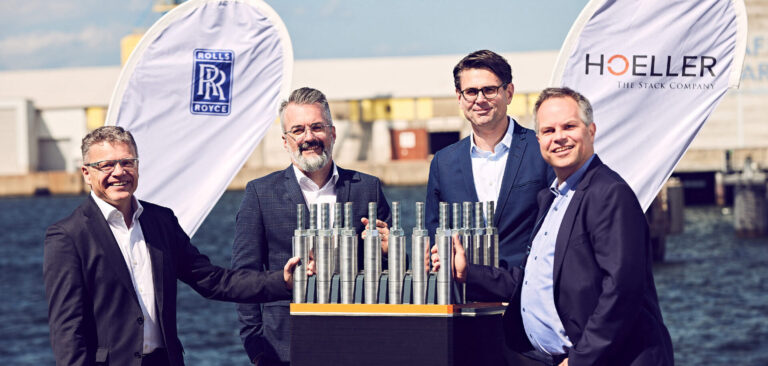Rolls-Royce is acquiring a 54% majority stake in electrolysis stack specialist Hoeller Electrolyzer, whose technology will form the basis of a new range of mtu electrolyzer products from its Power Systems division. Hoeller Electrolyzer, based in Wismar, Germany, is an early-stage technology company developing highly efficient polymer electrolyte membrane stacks, under the brand name Prometheus, for the cost-effective production of hydrogen.
The demand for green hydrogen is expected to rise significantly given that it is needed for fuel cells and hydrogen engines, for the production of synthetic drop-in fuels and for industrial processes that currently use hydrogen that is not created in a carbon-neutral process. Consequently, high-performance electrolyzers are a key component of any hydrogen system.
“By developing our own mtu electrolyzers and by taking a majority stake in Hoeller Electrolyzers, we are methodically growing our hydrogen portfolio and securing access to this fascinating technology, which is not a pipe dream but has great market potential,” said Dr Otto Preiss, COO and chief technology officer, Rolls-Royce Power Systems. “This will enable us to supply complete hydrogen solutions and make a significant contribution to protecting the climate. Our complete hydrogen solutions will enable customers to store renewably produced energy in the form of hydrogen for use as and when required, or for further processing or onward sale.”
“Our stack is going to produce hydrogen at a price not previously thought possible,” said Stefan Höller, managing director, Hoeller Electrolyzer.
“In Rolls-Royce, not only have we found an important customer for our stacks, we’ve also secured an ideal partner and supporter who shares our vision of putting stacks into full production,” added Matthias Kramer, CFO and joint managing director, Hoeller Electrolyzer.
Development work on the first mtu electrolyzer using a stack from Hoeller Electrolyzer is already underway. In 2023, it will go into operation at the Validation Center in Friedrichshafen to demonstrate how an electrolyzer fits into the overall architecture of a microgrid. An initial customer project is already planned for 2024.



